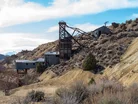US Private Mineral Rights System 'Drives Energy Innovation'

In a recent episode of his podcast 'What's Ahead", Forbes Media Chairman Steve Forbes says the US model of private mineral rights ownership is driving the exploration and discovery of minerals and metals vital for the future of energy production.
Forbes points out that in the US, individuals and companies can own mineral rights, which include resources such as oil, gas, coal, and copper found beneath the surface of their property. This, he says, contrasts with most other countries, where governments maintain ownership and control of subsurface minerals.
"Here, individuals and companies are allowed to own mineral rights," Forbes says. "In other countries, you can have land, but governments own and strictly control any minerals beneath the surface of your property."
This system of private ownership, according to Forbes, creates strong incentives for exploration, because property owners can profit from the discovery, development, and extraction of natural resources on their land. They may also sell or lease these rights to others, potentially earning royalties from any discoveries.
Forbes adds that this approach has led to the development of a "vibrant wildcat industry" in the US. Wildcatters are independent oil and gas explorers who search for new, untapped reserves. These independents often operate alongside major oil and gas companies, contributing to a more dynamic exploration landscape.
US an innovator in minerals extraction
The freedom to experiment with new extraction techniques has fostered innovation in the US energy sector, Forbes continues. He points to the development of hydraulic fracturing, commonly known as fracking, as an example of this innovation.
Hydraulic fracturing is a drilling technique that involves injecting a high-pressure mixture of water, sand, and chemicals into rock formations to create cracks, allowing oil and gas to flow more freely. This method has significantly increased US oil and gas production in recent years.
"This freedom to experiment is how drillers made the breathtaking breakthroughs with lateral oil drilling and hydraulic fracturing," Forbes explains. "That rocketed US output natural gas once regarded as running out in the US in which even the green oriented Europeans now recognise as a clean fuel became abundant."
Differing US & Mexico mineral rights 'enlightening'
Forbes contrasts the US system with that of Mexico, where the oil industry is state-owned. Despite similar geology in the southwestern US and northern Mexico, Forbes notes that oil and gas exploration is more extensive on the US side of the border.
"The geology of the US Southwest is no different than what it is across the border in Mexico," Forbes says. "Yet oil and gas exploration in the US is far greater in that region than in Mexico. Why? Because the oil industry there is owned by the Mexican government."
Forbes suggests that this government control approach, which is common in many countries, may be hindering energy development globally. He cites the potential for natural gas discoveries in Britain and Europe as examples where a lack of private mineral rights could be limiting exploration and production.
"Despite the US experience, Mexico's government control top-down approach predominates in the rest of the world," Forbes concludes. "There's a huge amount of natural gas waiting to be found and developed in Britain, Europe, and elsewhere. But the lack of American style of individual mineral rights is a costly hindrance."
--------
Mining Digital is a BlizClik title.




